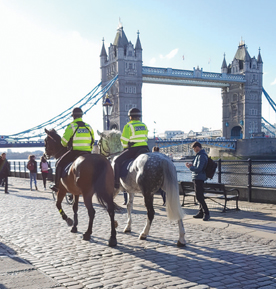In a speech in central London, the new Home Secretary Sajid Javid has launched the government’s new counter-terrorism strategy, CONTEST.
For the speech in full, visit the Home Office website. He said: “As Home Secretary my priority will always be to keep our country safe. The threat from terrorism is one of the starkest we face and it is clear there has been a step change. The biggest threat is from Islamist terrorism particularly from Daesh, but extreme right-wing terrorism is also an increasing threat. Both exploit grievances, distort the truth, and undermine the values that hold us together.
“As the threat evolves so must our response. Ultimately, our approach is about ensuring that there are no safe spaces for terrorists to operate – internationally, in the UK or online. Our greatest strength lies not only in what we do but who we are and the values and freedoms we hold dear. That is why everyone has a part to play in confronting terrorism. I want to say to all those who stand up against all forms of extremism that this government stands with you. I stand with you. But there is more for us all to do.”
It’s proposed to make it an offence to repeatedly view streamed video content online.
As for the private sector, the Government says it wants to work more closely with it on a range of issues including protecting economic and physical infrastructure, gaining faster alerts to suspicious purchases, and continuing to make it difficult for terrorists to use the internet for propaganda. For the 94-page CONTEST strategy in full visit gov.uk.
Comments
Simon Blackburn, Chair of the Local Government Association (LGA) Safer and Stronger Communities Board, called for proper funding for work to tackle radicalisation. He said: “Councils are committed to safeguarding communities by tackling extremism and already look for tell-tale signs of people at risk of radicalisation and work with the police and other agencies to protect people.
“Local authorities are engaging with all areas of society and working with community groups to help protect their towns and cities and reduce the risk of young people being radicalised. This includes delivering wide-ranging education and training programmes to address the issue, training front-line staff to spot signs of radicalisation and undertaking outreach work to engage young people and parents.
“This is not only hugely important but also extremely complex. That is why we need to see further detail on the CONTEST initiative announced today and will be looking to work closely with the Government to ensure any new measures are effective.
“Information sharing could be a positive step but what is crucial is that councils are not treated as a replacement for the expertise and resources of the security services and police. Local authorities are not MI5 and it’s essential that the police and security services lead on responding to and acting on any threats.
“We will continue to engage with government to ensure residents are kept safe and that local authorities can play their role in supporting and protecting communities. While we can all be on the lookout, preventing and protecting us from terrorism is a responsibility that should remain with the police and security services.”
At the Association of Police and Crime Commissioners (APCC), chair and Hertfordshire PCC David Lloyd welcomed the publication. He said: “Since the last strategy was published in 2011 the threat from terrorism has grown, significantly from Daesh and an increased threat from extreme right wing groups – this strategy takes account the reviews and lessons learned over the last year.
“Increasingly groups are exploiting the internet to spread extremism and groom the vulnerable and it is right that the security services, counter-terrorism policing and policing generally have the right powers and resources to tackle this threat.
“The decision to establish pilots to test new multi-agency approaches will also be welcomed, with MI5 and Counter-Terrorism Policing able to share more information with a broad range of local partners.
“Ultimately, reducing the risk of terrorism requires strong local partnerships. As we set out in our joint Policing Vision, the link between communities and the police will continue to form the bedrock of British policing. We need to ensure that local policing is tailored to society’s complex and diverse needs and, importantly, able to build trust and legitimacy in communities.”
Picture by Mark Rowe from the May 2018 print issue of Professional Security magazine; the launch of London-wide Project Servator.










